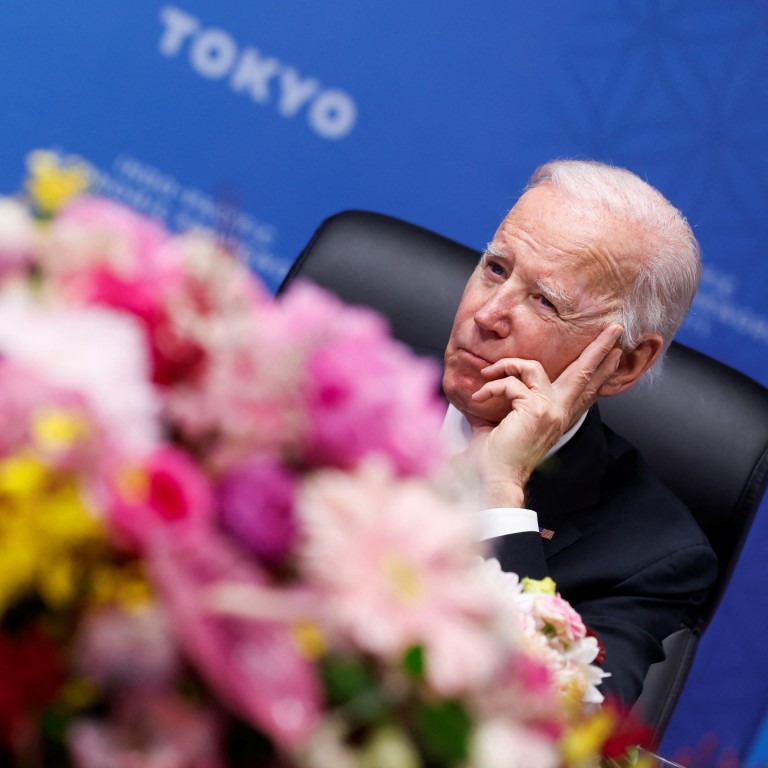
Letters | US excluding Taiwan from Indo-Pacific Economic Framework sends mixed message
- After underscoring Taiwan’s role in the region earlier this month, the US finally decided not to include the island in the framework
- The decision highlights inconsistencies in the US’ policy in the region and its commitment to helping Taiwan expand its manoeuvring space
US National Security Adviser Jake Sullivan elaborated on the decision by reiterating Washington’s commitment to deepening economic ties with Taiwan but “on a bilateral basis”. In doing so, the US is trying to avoid further antagonising China while reassuring Beijing about Washington’s commitment to maintaining the status quo across the Taiwan Strait.
Being economically intertwined with like-minded countries in the region would not only help expand Taiwan’s economic ties but also enhance regional powers’ motivation to support the island. Hence, the US sidelining of Taiwan will raise questions about Washington’s commitment to helping Taiwan expand its manoeuvring space and to “encourage Taiwan’s meaningful participation in organisations where its membership is not possible”, in the words of US Secretary of State Antony Blinken.
The US has embraced a policy of “strategic ambiguity” when it comes to Taiwan. Closing the door on Taiwan’s inclusion in the IPEF is likely to adversely affect US-Taiwan ties. Additionally, the US move reveals a lack of consistency in its policy of bolstering collective resilience against economic coercion and has made the likelihood of Taiwan’s participation in Biden’s Asian economic initiative at a future date more unlikely.
Huynh Tam Sang, international relations lecturer, University of Social Sciences and Humanities, Ho Chi Minh City

